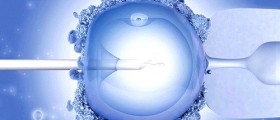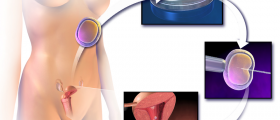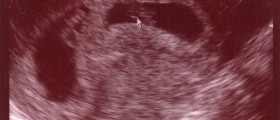
1. Don't use herbal treatments of any kind during IVF. It isn't that the herbs don't do what they're supposed to do. It's that the doctor cannot predict their effects when adding, stopping, or changing hormone treatments.
2. Consider acupuncture. Each IVF cycle costs $10,000 to $30,000 in the USA. An acupuncture treatment costs $30 to $300. Even though acupuncture treatments (given to the female partner) only increase the rates of successful pregnancy by about 10 per cent in most clinics, the small cost of acupuncture weighed against the huge cost of IVF makes acupuncture a worthwhile investment. Scientists have recently discovered that acupuncture alters the metabolism of adenosine, changing the body's reactions to stress, pain, and inflammation.
3. Men, don't be afraid of meat and potatoes diets. A recent Dutch study found that the folate provided by a traditional meat and potatoes diet enhanced production of viable sperm, even canceling out the effects of smoking, overweight, and variocele. Sugar, however, undid the benefits of folate.
4. Women do not have to go on strict "anti-inflammatory" diets to have successful IVF. Low-grade inflammation is not desirable, but is not an impediment to pregnancy.
5. Women should, however, avoid alcohol even before the implantation procedure, since the receptivity of the uterus to the fertilized egg is diminished by excessive alcohol consumption. After IVF, any alcohol consumption can endanger the future health of the child.
6. Prospective mothers should not smoke, and should be exposed to second-hand (sidestream) tobacco smoke. In a study at McMaster University in Canada, mothers who smoked had a 12.0 per cent success rate with each IVF cycle. Mothers exposed to second-hand smoke had a 12.6 per cent success rate. Mothers who did not smoke and who were not exposed to second-hand smoke had a 25.0 per cent success rate, twice as likely to become pregnant during each cycle of IVF.
7. The research evidence for the role of caffeine in the in vitro fertlization process itself is ambiguous. Pregnant women who consume caffeinated coffee, tea, and soft drinks, however, may produce less estrogen, which may have an effect on the development of the child--or may not. To be on the safe side, stick with decaf once pregnancy has been confirmed.
















Your thoughts on this
Loading...